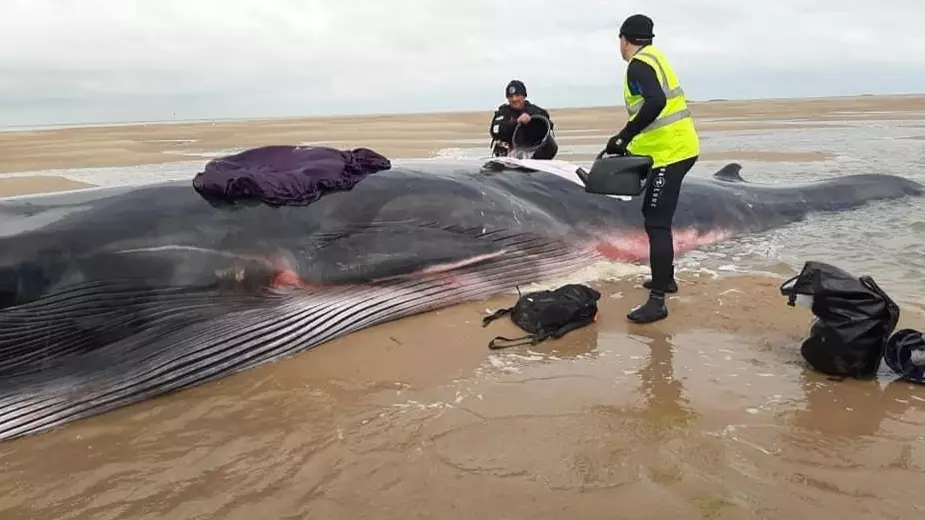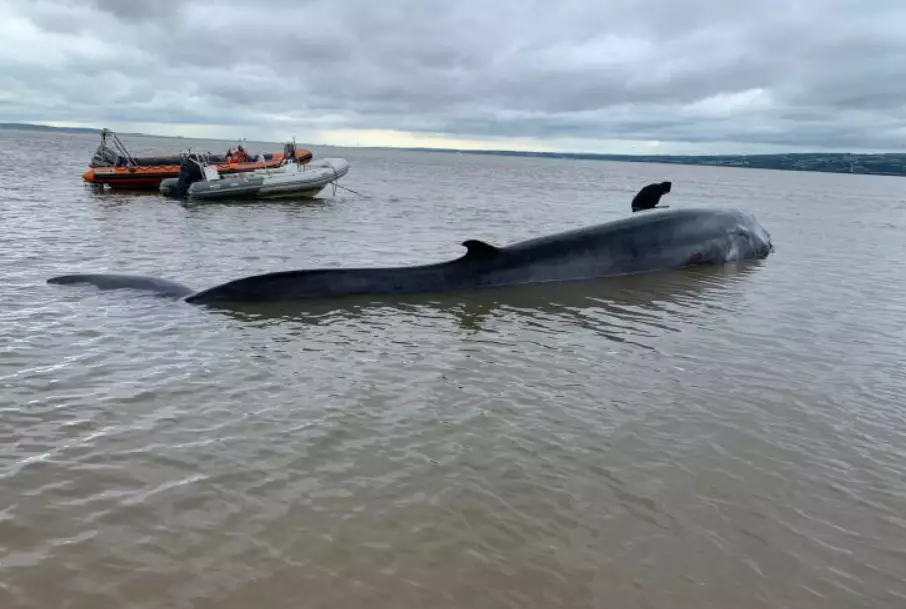
Rescuers have managed to successfully return a 44ft whale to the water after it became beached on the Dee Estuary for the second time in 24 hours.
The fin whale, which has been given the name Henry by the rescue crew from the British Divers Marine Life Rescue (BDMLR), was found at around 9am this morning on the banks of the Dee Estuary in North Wales, Cheshire Live reports.

Henry was found stranded on Friday at around 1.30pm and had been released back into the sea by the crew. The team were hopeful that the whale would survive and that he'd be able to swim away but he became beached again.
Advert
After he washed up the second time, the team from BDMLR expressed concern for the animal, and were worried they would be unable to reach Henry to help get him back out to sea.
On a post on social media, BDMLR wrote: "Due to the size and weight of the animal and the geography of the area, it is not possible to get the animal closer to the water to help relieve the pressure on its body.
"Dragging the animal by its tail will cause significant injuries and is not an option. As we mentioned yesterday, putting the animal to sleep is also incredibly difficult for a variety of reasons related to its size too.
"We are saddened to say that the outlook today is looking less positive than yesterday."
However, according to Cheshire Live, the team from BDMLR confirmed this afternoon just before 5pm that the whale was back in the water, adding that they were 'monitoring the situation closely' and will release a further statement later today.
Advert
Coastguard crews from Holyhead, Flint and Rhyl were all on-hand at the scene, as were the RNLI crew from Flint.
A spokesperson from Holyhead Coastguard, told the news outlet that they were keeping watch as people were trying to get photos of the animal while the tide was coming in, adding that the scene was 'known for having areas of mud, which can trap people'.
Featured Image Credit: Chris Cureton/BDMLR